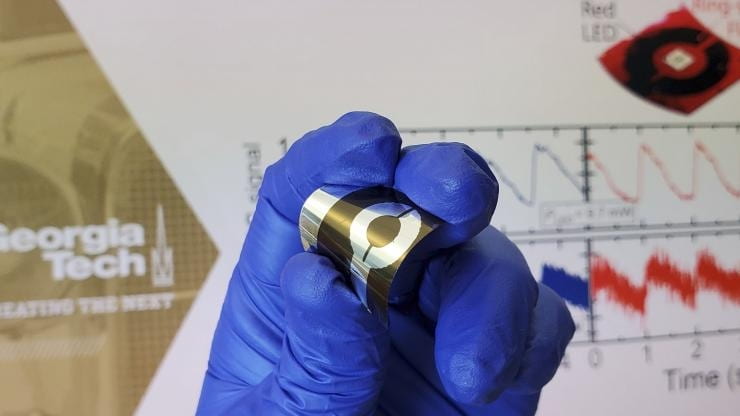
Professor Bernard Kippelen’s group at Georgia Tech published their research findings on large-area, low-noise organic photodiodes in the journal Science. His group found that optimized choices of the semiconductor and electrode materials that improve diode characteristics enable organic photodetectors that can detect low light levels with low noise. “What we have achieved is the first demonstration that these devices, produced from solution at low temperatures, can detect as little as a few hundred thousand photons of visible light every second, similar to the magnitude of light reaching our eye from a single star in a dark sky. The ability to coat these materials onto large-area substrates with arbitrary shapes means that flexible organic photodiodes now offer some clear advantages over state-of-the-art silicon photodiodes in applications requiring response times in the range of tens of microseconds.” (Georgia Tech Research Horizons)
